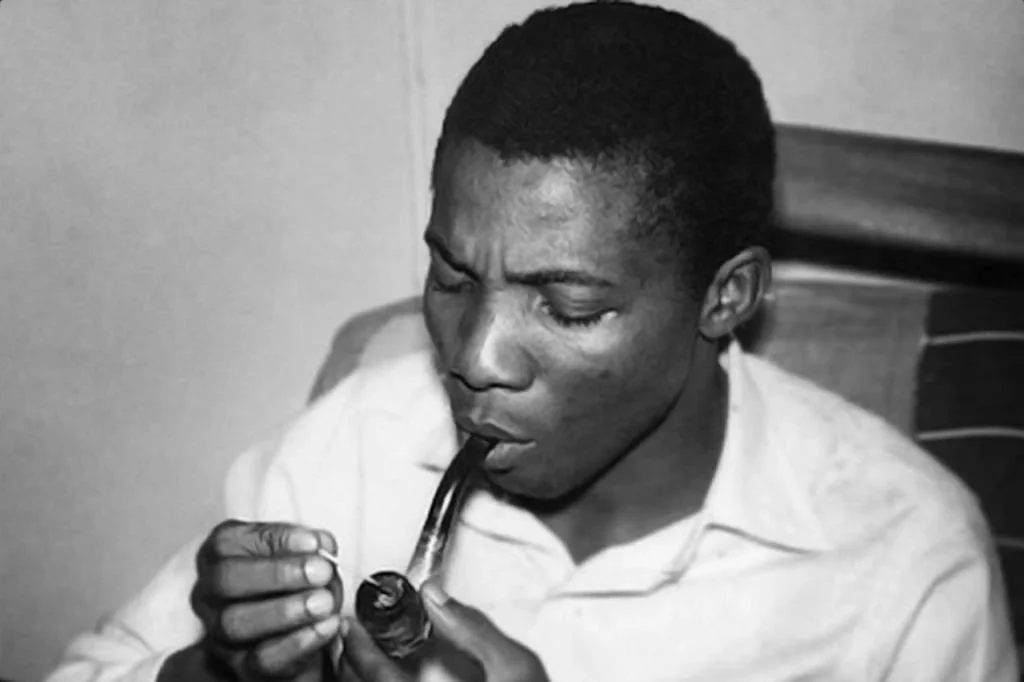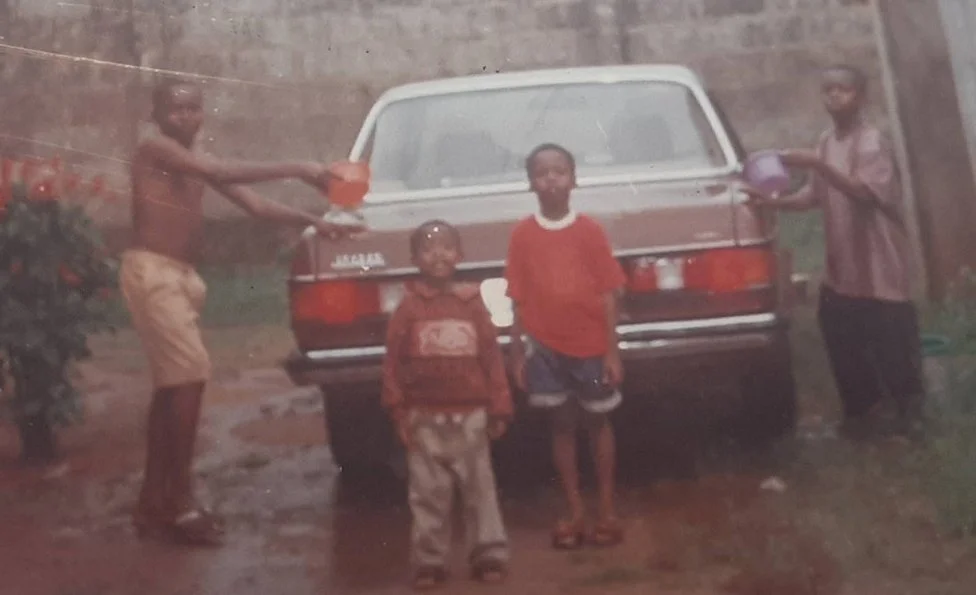-
![]()
A Memorial to Two Immortals
“English teachers never really die. Long after their corporeal existences still, they live in pronunciations, the usage or dismissal of oxford commas and the inflections of speech of students, grand-students and students, ad-infinitum. A Facebook poster, oblivious of this, intimated me with the circumstances of D.D’s passing; his kidneys had given way. In what may have been symptoms of the final decline, he was delirious. He was said to have screamed, higher than the vitals could account for; “I cannot die”. Repeatedly, “I cannot die”, as though it were a prayer of denial, a test of the biblical powers of utterance and a mantra preparing the tongue for bursting into the hallways of glossolalia (in order to ask for the things ‘we know not to ask’) all rolled into one.”
-
![]()
Fragments Out of the Deluge
“While today’s reading public looks at the great Nigerian novel and immediately recognizes the fluidity of narration and the implications of the crises with which the equally recognizable protagonist is faced, attends a staging of the great Nigerian play and is invigorated by the vibrancy of colours, song, ritual and dance and the acute engagement with political issues it is all too familiar with, it looks to most of the poetry that has been christened “serious” and does not recognize it (excepting, perhaps, the occasional name-dropping of local deities). Even when the poems shift away from the sprawling internal landscapes of the poets and seek to engage public issues, the poems still remain unnecessarily enigmatic driven by erroneous ideas of what it means to elevate language. Elevation, vertical, is forgone for the logarithmic spiral and, in some cases, for outright abscondment. The thriving genres show that what may be required is not simply a nostalgia for rustic modes but a recognition of the need for the modern to arise. A mistrust of simple transplantations.”
-
![]()
First Draft: Moyosore Orimoloye
“That all poetry does is wrap the mundane in arcane language. That its only purpose is to mystify the already understood. Poems are, thus, seen as unnecessarily complicating things that are ‘simple’ and are roundly rejected by a fair fraction of the population. It is only a half-truth. Some poems do the exact opposite, giving us ‘simple’ words by which to articulate what we think is a complex experience. We, thus, have this back and forth where the people say ‘It’s simple!’ and the poets say ‘It’s complex!’ and vice versa. I am willing to wager the ping-pong will never end.”
-
![]()
Passenger: The laureate of the lost and broken-hearted
“Most of the gospel of Passenger, like other popular gospels, is based on love: lost love, found love and all the loves in-between. I was twenty or so, closing in on my final year of University, a Passenger addict, listening every night to songs about love, when I met her. Unsurprisingly, It was a Passenger song, Rolling Stone, that brought us together. We’d sing it on the way to the cafeteria and let it play whilst we ate. It wasn’t a conventional love song but it featured two lovers. That connection was enough to kick-start a long thread of emails about “Two dots” (some arcade game) and other voyages around the point. I am reminded now of a line in Tosin Gbogi’s new collection; Locomotifs and other songs where the poet-speaker, a journeyman, at the second station proclaims-
all true love does not begin…”
-
![]()
Against Intention
“What the element of deliberation in intentional love first brings to mind is cultivation — a word that has found use in describing the act of fostering relationships. The connection seems at first innocuous — it is all well and good to plant the so-called seed of friendship, to nourish it, and to do the required weeding if the weeds of virulent disagreement begin to grow. But while I understand the allure of a partner or friend that nourishes, what about the harvest? I am concerned that to be intentional is to fatten the ram for an imminent feast, to tend to the yams for a pounding to come.”
-
Birthday Notes
Beyond the exposure to the poems of others and passive lessons in craft, a poet is constituted by the attitude of his family toward him. If a poetic disposition is not recognized or tolerated, all is lost. I am grateful that my family has let me throw my hands up like a poet, wash plates like a poet, and cry like a poet all these years. A poet is built of excuses.





